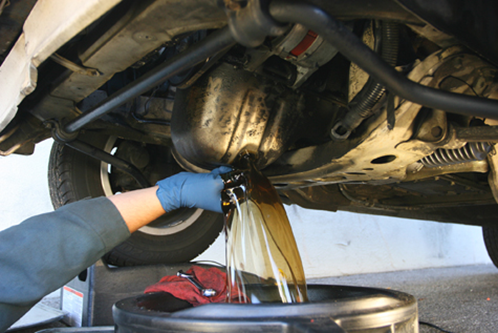Car dealers and oil-change chains put stickers on our windshields after changing the oil in our vehicles that dictate you bring your car or truck back after another 3,000 miles. This is dinosaur thinking. Hardly any vehicles on the road require oil changes that frequently. While you can go longer than 3,000 miles, it is a good idea to check the oil at that point, especially on older vehicles. One of our readers has written in asking about both the requirement of using synthetic oil.
Dear Car Coach:
My friend drives a 2011 Subaru Forester. She had an oil change and tire rotation the other day for $96. She was shocked because, even though her manual recommends using synthetic oil, the dealer said they used conventional oil. She felt ripped off all around. My question: If synthetic oil is recommended, is it necessary? ET
Dear ET:
A bill of $96 for both tire rotation and an oil change is not outrageous. Besides the oil and new filter, they are probably charging you for one-hour of labor even if the whole job took less than that.
But what I’m concerned to hear is that the dealer installed oil other than that specified by the owner’s manual. When a manufacturer requires certain oils, there is a huge reason. Usually, synthetic oil is recommended in high-revving engines and cars that have a lot of newer aluminum components. If your friend follows the owners manual and uses the synthetic oil as recommended, then changing the oil every 7,500 miles should be just fine.
If the dealer or quick-lube shops use conventional oil on your car, there can be engine damage over time. Mostly, you could see pre-mature wear on parts. The dealer is probably recommending an oil change every 3,000 miles for two reasons: They know the cheaper oil they are using breaks down faster and they get to have you in the service department twice as often. If your car is meant to use conventional oil, then every 5,000 miles is standard these days.
One caveat: It is wise to check the oil at 3,000 miles. You may be down a half-quart. In that event, it’s a good idea to add enough oil to reach the notches on the dipstick. Make sure you are using the same oil that is in the car. This kind of attention can turn a car that might get 100,000 relatively trouble-free miles into one that gets 150,000 miles and more.
I would seek another place to get the Subaru serviced. I might even report them to the Better Business Bureau. Your friend’s Subaru is equipped with a very durable “boxer engine,” that will run well over 100,000 with the proper fluids. In fact, Subarus are known for long life if you take good care of them. Subaru owners routinely get 200,000, 300,000 miles and more. Synthetic oil is well worth the price every 7,500 miles because of the money it will save you later on repairs, and because the longer you drive the Subaru the longer you can put off buying a new car.



